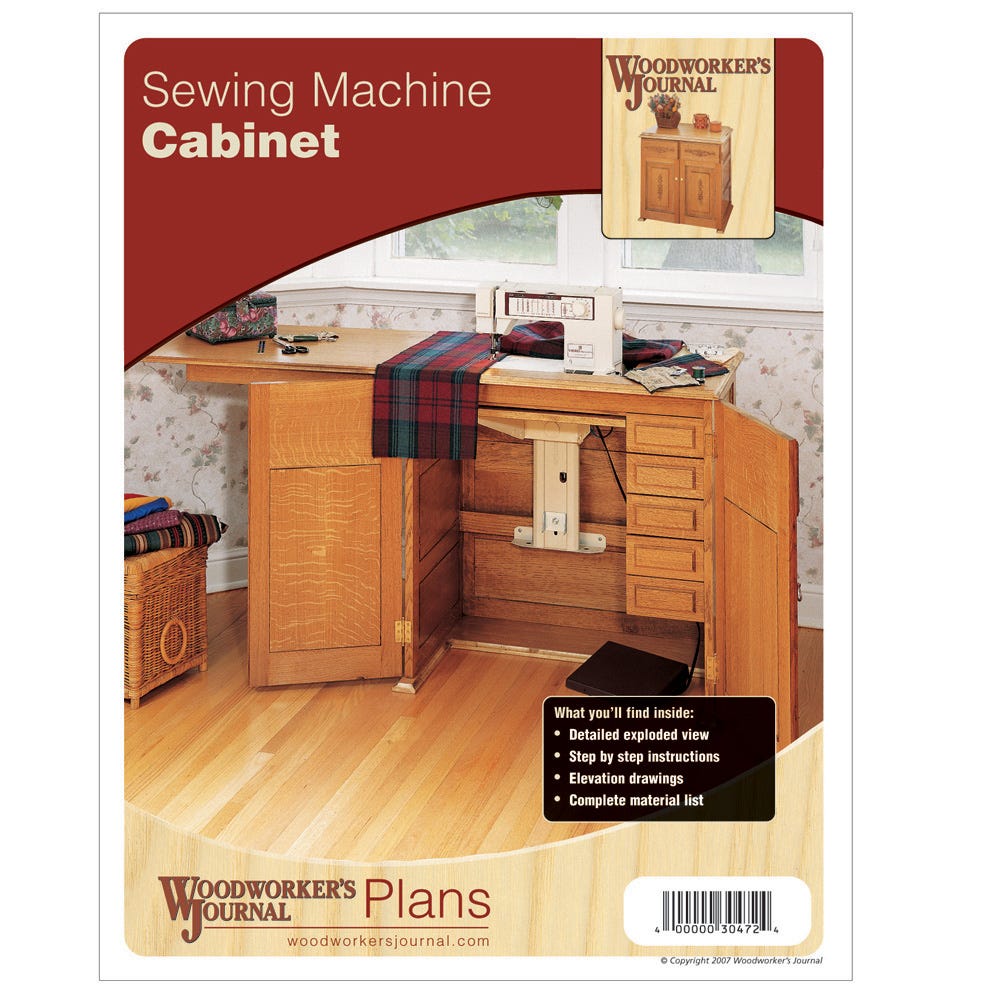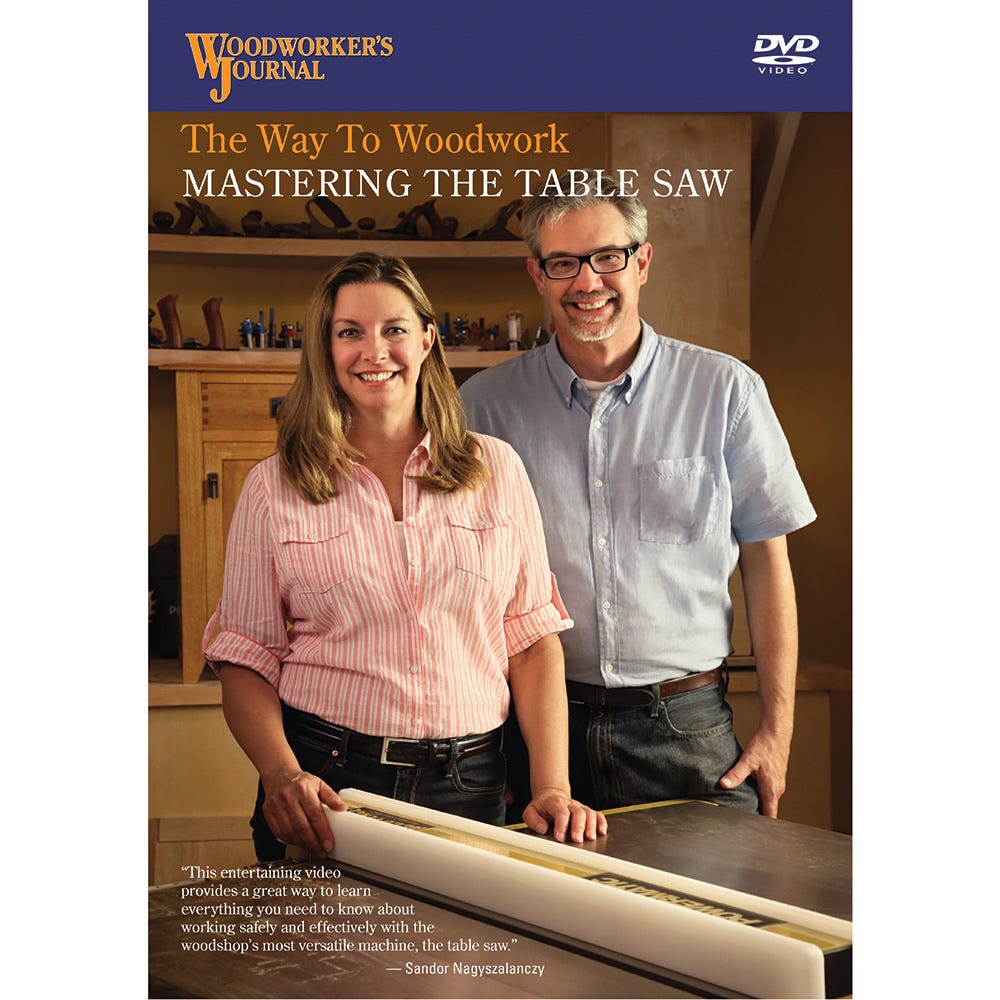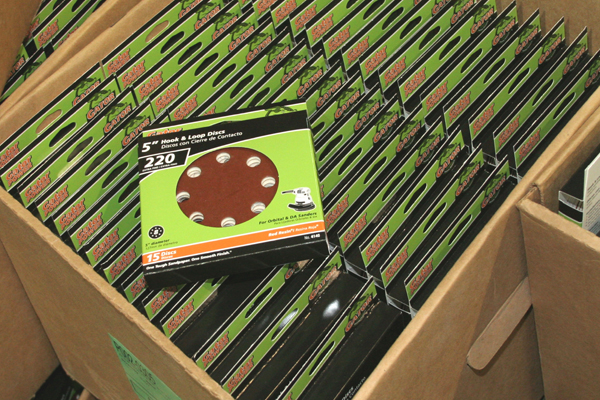
Up until recently, I’ve never really given much thought to sandpaper…where it comes from, how it’s made or what tidbits of interesting history might be behind it. Sandpaper has always been one of those “means-to-an-end” products for me. And, well, it’s associated with sanding. I try not to spend more time than I really need to thinking about sanding…
But, the nitty gritty details about grits became a lot more interesting earlier this spring when I had the opportunity to tour Ali Industries, a sandpaper manufacturing plant just a couple hours west of my home.
Little did I know, but Ali Industries has been making consumer sandpaper and sanding products for 40 years—and the company’s ties to other abrasives go back even farther than that. The company’s founder, Frank Ali, got into the business back in 1961 during NASA’s space race heyday. Frank saw a need for specialized abrasives in the aerospace industry, and he began to make abrasive cartridge rolls for deburring spacecraft and jets. Yep, rockets and fast airplanes—the stuff I loved to dream about as a kid. Seems that, if you don’t polish a rocket to near perfection, it can burn up when it enters or leaves the atmosphere. Clearly, not good. Thanks in some part to Frank’s efforts, his industrial abrasives helped to put astronauts on the moon and enabled military and experimental planes to slip more smoothly through the wild blue yonder. Frank even met fellow Ohioan, astronaut and former senator John Glenn back in the glory days.
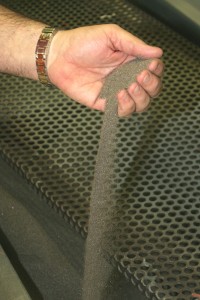
Pretty cool history in my book!
Well, funding began to dry up for moon missions in the late 60s, and Frank shifted the family business over into retail abrasives. Since he’d been making premium-quality sanding products for industry, it seemed only right to offer top-shelf abrasives to woodworkers, auto buffs and hobbyists like us. He began to sell sandpaper to various hardware-store chains such as Ace and True Value, as well as auto supply stores. That tradition of quality consumer abrasives continues today. Now, all four of Frank’s sons are actively involved in the family business, manufacturing thousands of feet of American-made sandpaper every day.
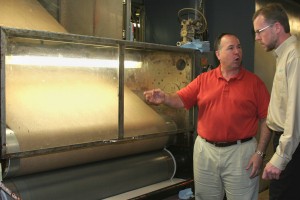
I also learned that these Ali boys are a resourceful lot. Frank and his sons literally designed and built the colossus of a machine that manufactures their Gator Finishing Products. They call it, ominously, “The Maker,” and it has to be at least a football field long. If you’ve ever seen a continuous-feed web printing press in operation, you’d get the gist of how “The Maker” makes sandpaper. Giant rolls of substrate, which can be either paper or cloth, feed into one end of the machine. It applies resin and a layer of grit (technically called grains), bakes the paper one or more times, depending on the product, and rolls the completed bulk sandpaper back up on the other end. A unique electrostatic process draws the grains up onto the substrate like a magnet. Unlike a gravity-based process, the static current ensures that the largest flat facets of the grains end up glued to the paper, so their pointed tips face out. And that improves abrasive performance.
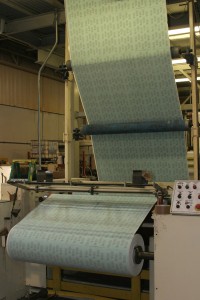
From there, the sandpaper receives pressure-sensitive adhesive and backing paper or a fabric layer for hook-and-loop. Then it’s cut into sheets or disks and belts before it’s packed up and shipped out to hardware stores and home centers. Ali Industries also makes an innovative line of ergonomic ZIP Sander™ hand-sanding products, plus concrete and metal grinding wheels. The company even prints its own packaging and manufactures metal product display units — all under one roof in Fairborn, Ohio. My tour guide, Phillip Ali, summed up the company’s mom-and-pop approach to quality this way: “My brothers and I grew up in this factory. Abrasives are all we know, and that’s why our company will continue to be a leader and innovator in this industry.”
I left the plant that day with a whole new perspective on sandpaper. Of course, it was also great to see a small company making good products for woodworkers. Next time I’m shopping for a fresh supply of abrasives, I think I’ll look harder for the bright green alligator on the package. After all, if Frank’s abrasives were good enough for NASA, they’re good enough for me.
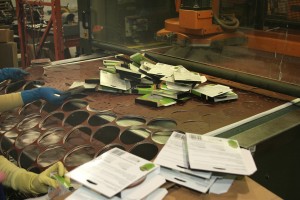
Try some Gator sandpaper out for yourself (learn more about Gator Finishing Products at www.gatorgrit.com). Then, I hope you’ll let me know how it stacks up against the sandpaper you usually use. I’m sure the folks at Ali Industries would appreciate that feedback, too.
Catch you in the shop,
Chris Marshall, Field Editor

